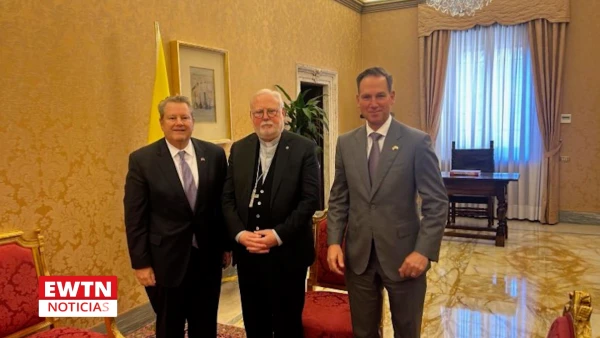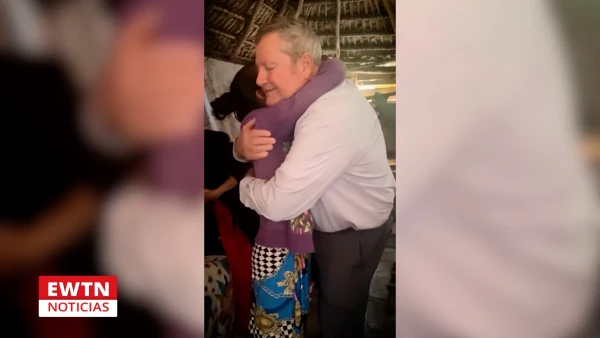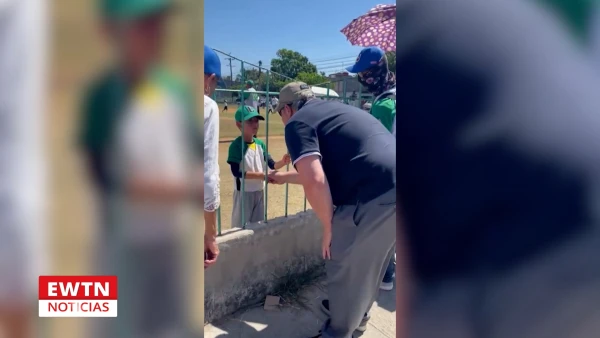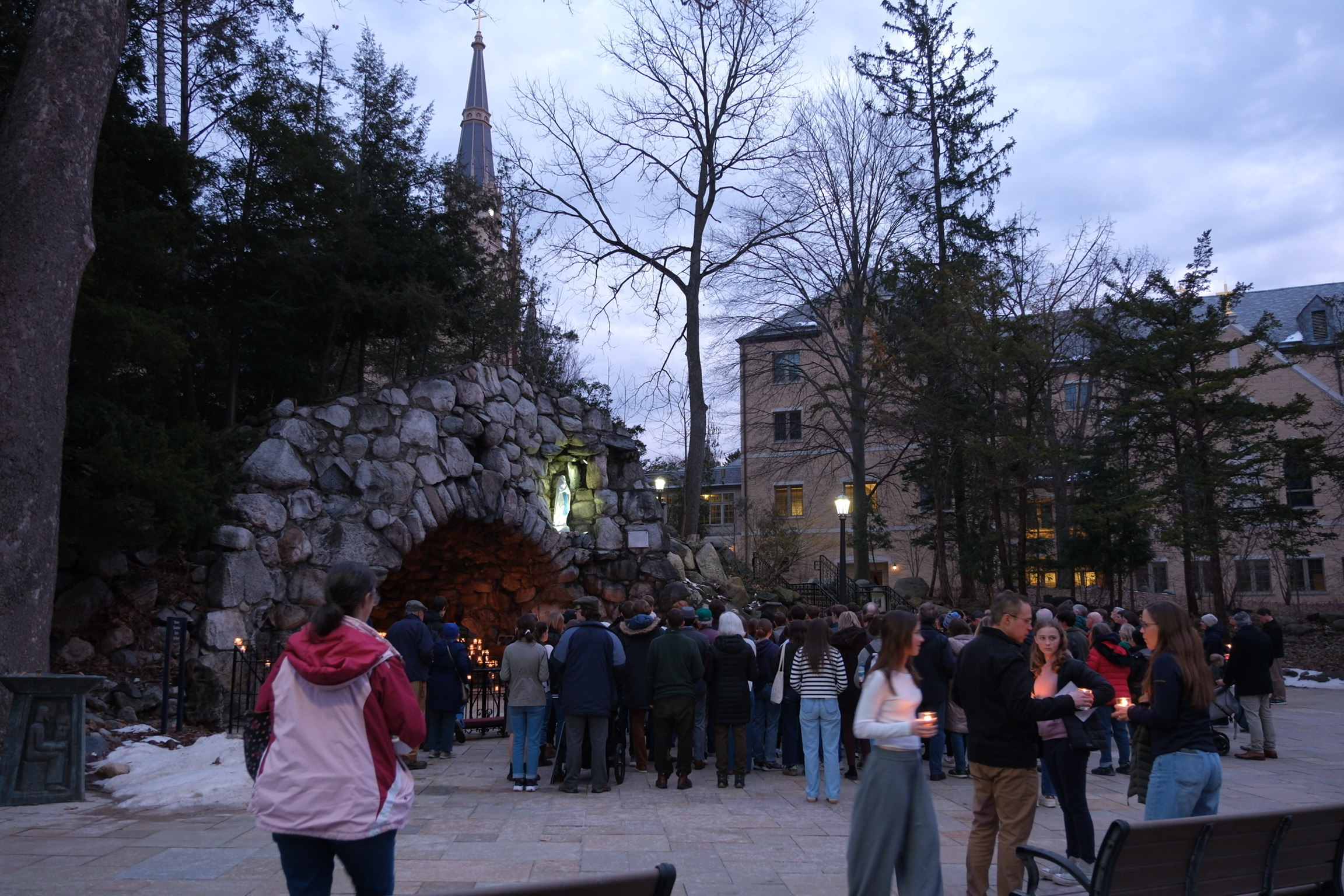Deacon Steve Greco, founder of Spirit Filled Hearts Ministry and director of evangelization and formation for the Diocese of Orange in California, has joined with technology company eCatholic to launch the Adore Movement to promote adoration of the Blessed Sacrament.
The movement has two components: creation of a website featuring a new adoration finder tool to help Catholics find the location of adoration in their area, and the release of "Adore Him," a full-length feature film promoting adoration.
The Adore Movement's website went live in February. "Adore Him" is currently in production and will open in U.S. theaters in October.
"In 2022, we launched the 'Jesus Thirsts' movement in conjunction with the kickoff of the U.S. bishops' three-year National Eucharistic Revival to promote the Catholic teaching of the Holy Eucharist," Greco noted.
"Our movement included a series of in-person diocesan events around the country, which culminated in the release of the 2024 film 'Jesus Thirsts: The Miracle of the Eucharist.' It was a major success, and we felt led by the Lord to focus next on Eucharistic adoration."
From business executive to full-time evangelist
Greco is a retired pharmaceutical industry executive who was ordained a permanent deacon in 2007. As a young adult he experienced a conversion from being a "lukewarm to an on-fire Catholic" and has nurtured a passion for evangelization ever since. In 2014, he launched Spirit Filled Hearts Ministry, which engages in a variety of initiatives to promote the Catholic faith.
Today, he is a full-time evangelist, working under the auspices of the Diocese of Orange from an office in the diocese's famous chancery office, Christ Cathedral (formerly Rev. Robert Schuller's Crystal Cathedral). He works in conjunction with the bishop of Orange, Kevin Vann, and Orange Auxiliary Bishop Timothy Freyer, both of whom have been regular participants in Spirit Filled Hearts Ministry events. Vann, in fact, is the first on camera to introduce the "Jesus Thirsts" film to viewers.
"The Eucharist is at the heart of our faith. Any revival in our own lives, as well as that of the Church as a whole, must begin with a renewed devotion to Christ in the Eucharist," Greco told EWTN News.
The deacon went on to cite a 2019 Pew Research Center survey that found only 31% of Catholics believe that the bread and wine at Mass "actually become" the body and blood of Jesus at the command of the priest; 69% viewed them as mere "symbols."
"Combine a survey like this with the reality that many Catholics are leaving the active practice of their faith and it shows us the necessity of focusing on the real presence of Jesus and the power of the Mass and Eucharistic adoration," he said.
Greco came up with the idea for the Adore Movement after prayer. "The Lord wants Eucharistic adoration to be better understood in terms of its grace and power," he said.

The movement's outreach
Visitors to the Adore Movement site can listen to videos featuring Greco; eCatholic CEO Jason Jaynes; Norbertine Father Charbel Grbavac, the movement's spiritual director; and Dan DeMatte, co-founder and executive director of Damascus, a ministry to youth and young adults, and co-host of the radio program/podcast "Beyond Damascus."
There are print-ready materials suggesting how one may do a Holy Hour of adoration before the Blessed Sacrament as well as postcards and posters that can be downloaded to promote adoration in one's own parish. The site can be viewed in both English and Spanish.
While he's proud of what his team at eCatholic has accomplished, the site is still very much a work in progress, Jaynes said. eCatholic provides technology services to 40% of Catholic parishes in the United States, he said, which means the company can easily access up-to-date adoration information from those sites. For those not contracted with eCatholic, the team requests parishes to send in their adoration information so it can be added or updated.
The site is a "living, breathing, evergreen organism," Jaynes continued, with new videos, adoration sites, and educational materials being added regularly. eCatholic has worked with Spirit Filled Hearts Ministry on other projects previously, he noted, including "Jesus Thirsts." They were particularly excited to be part of the Adore Movement, he said, "because as we're surrounded by so much noise in society, and our team wants to utilize their capabilities to encourage Catholics to regularly spend time in silence before Our Lord in the Blessed Sacrament."
Jaynes said he believes that eCatholic's patron saint, Carlo Acutis, would be supportive of the Adore Movement, as Carlo believed that "technology should be a tool to bring people offline and back to the Church."
'Adore Him' film in production
Greco explained that the "Adore Him" film will feature interviews with prominent clergy and lay Catholics, including Chris Stefanick of Real Life Catholic, Father Chris Alar and Father Donald Calloway of the Marian Fathers, Deacon Larry Oney of the Archdiocese of New Orleans, Curtis Martin of FOCUS, and Mark Hart of Life Teen, as well as Grbavac and DeMatte. Filming is scheduled through April, with the final release in October.
Greco said he hopes the Adore Movement will help Catholics nationwide to grow in their relationship with Christ and begin attending Eucharistic adoration on a regular basis.
"By allowing Jesus to fill your heart with his love, he will lead you to a better participation in the Mass and to more fully appreciate the blessings of Eucharistic adoration," he said.
The deacon also noted that the work of Spirit Filled Hearts was funded entirely by donors and welcomed donations in support of the Adore Movement, which will begin in the U.S. before being launched overseas.





